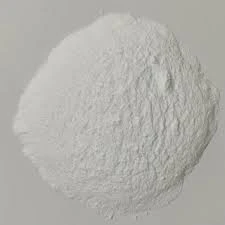Ammonium Thiocyanate Properties, Applications, and Safety Considerations
Ammonium thiocyanate, with the chemical formula NH4SCN, is a white crystalline compound that plays a significant role in various industrial and scientific applications. It is the ammonium salt of thiocyanic acid and is known for its interesting properties, solubility in water, and ability to form complexes with various metals.
Ammonium Thiocyanate Properties, Applications, and Safety Considerations
In the laboratory, ammonium thiocyanate is frequently used as a reagent in analytical chemistry. It serves as a source of thiocyanate ions, which can form complexes with metal ions in solution. This property is particularly useful in techniques such as colorimetric analysis, where the formation of colored complexes allows for the quantification of metal ions. For example, the reaction between iron(III) ions and thiocyanate produces a deep-red complex, making it possible to determine the concentration of iron in various samples.
thiocyanate ammonium

Beyond laboratory applications, ammonium thiocyanate is widely utilized in the agricultural sector. It serves as a nitrogen source in fertilizers, promoting plant growth and yield. Due to its solubility, it can easily be absorbed by plants. Moreover, the thiocyanate ions can have herbicidal properties, making it an effective compound for weed management in certain formulations. However, these applications should be carefully monitored to avoid environmental impact, as excessive use of thiocyanate can lead to soil contamination.
In the field of pharmaceuticals, ammonium thiocyanate has historical significance, particularly in traditional medicine. Some studies have indicated its potential use in treating various ailments, although further research is necessary to fully understand its therapeutic benefits and safety profile. In addition, its derivatives have been explored for their potential in synthesizing pharmaceutical compounds.
Safety is a crucial consideration when handling ammonium thiocyanate, as it can be hazardous if not approached with caution. The compound is irritant to skin, eyes, and respiratory tract, and ingestion can lead to serious health effects. Proper protective equipment, including gloves, goggles, and masks, should be employed when working with this chemical, and it should be stored in a cool, dry place away from incompatible substances, such as strong oxidizers.
In conclusion, ammonium thiocyanate is a versatile compound with applications in agriculture, analytical chemistry, and pharmaceuticals. Its properties make it an essential reagent in various scientific processes, while its role in fertilizers underscores its importance in agriculture. However, safety precautions must be taken seriously to prevent health risks associated with its use. As research continues to explore its potential, ammonium thiocyanate remains a significant topic of interest across multiple fields.

